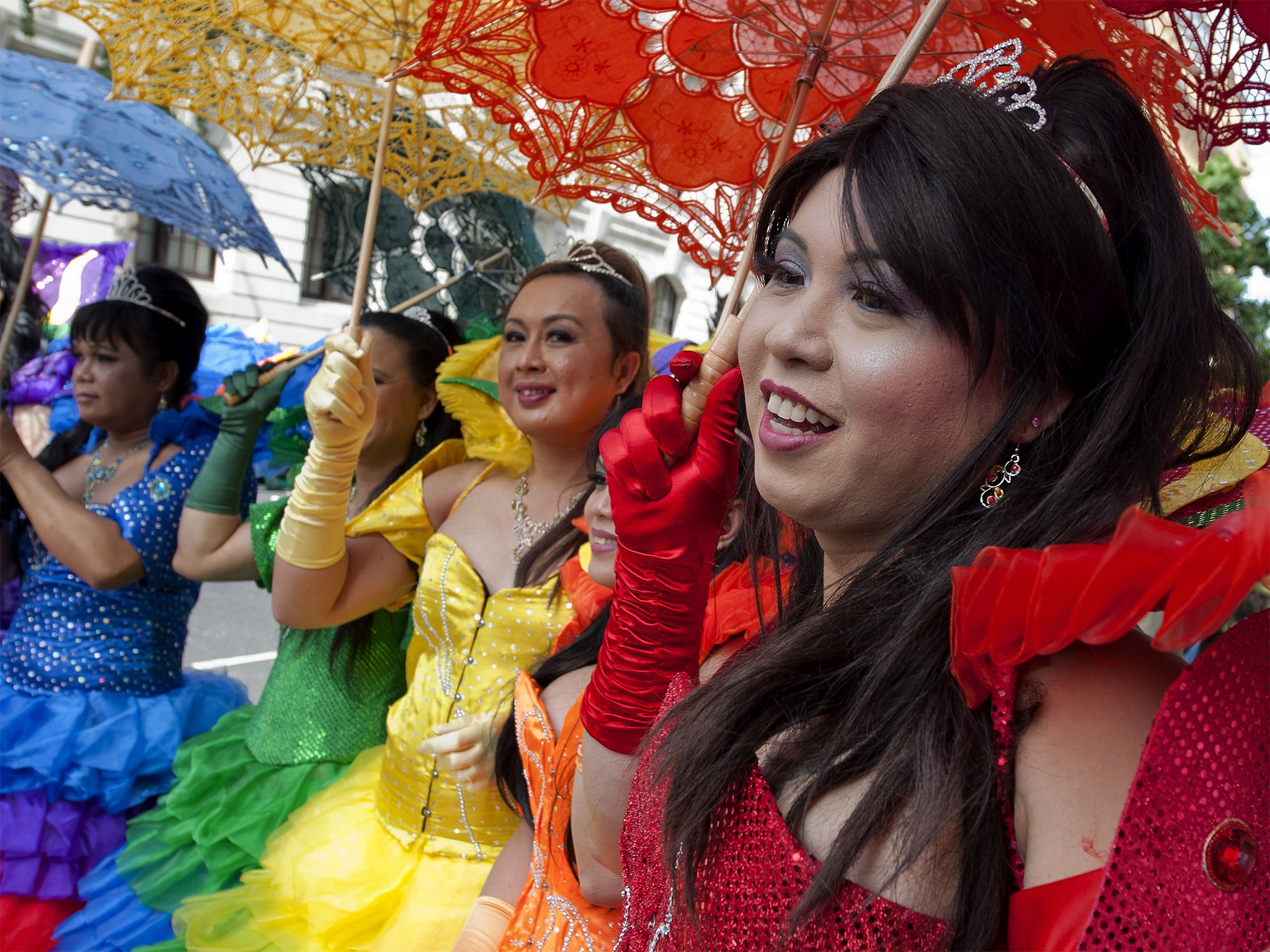The Stonewall list was interesting but too simplistic - the LGBT experience can be very different if you're not white
As a former counter-terrorism detective I saw Stonewall congratulate MI5 and wondered: would their black and Asian employees been as happy as their white LGBT ones?


Your support helps us to tell the story
From reproductive rights to climate change to Big Tech, The Independent is on the ground when the story is developing. Whether it's investigating the financials of Elon Musk's pro-Trump PAC or producing our latest documentary, 'The A Word', which shines a light on the American women fighting for reproductive rights, we know how important it is to parse out the facts from the messaging.
At such a critical moment in US history, we need reporters on the ground. Your donation allows us to keep sending journalists to speak to both sides of the story.
The Independent is trusted by Americans across the entire political spectrum. And unlike many other quality news outlets, we choose not to lock Americans out of our reporting and analysis with paywalls. We believe quality journalism should be available to everyone, paid for by those who can afford it.
Your support makes all the difference.As a gay man who is mixed-race, each year I find Stonewall’s LGBT Workplace Equality Index of interest. But each year I ask myself, where’s the employment benchmarking for BAME people by a likewise organisation?
I know Business In The Community have an employer-centred compilation and yes, there are diversity awards – but where are the practical surveys from a BAME organisation telling us how good our employers really are, or will be, at giving jobs to an acceptable range of people?
It’s good to see that organisations, especially public ones like MI5, are getting their act together when it comes to treating lesbian, gay, bisexual and transgender staff better. Many others not on the index could learn a thing or two from this best practice. But the fact that there is a Stonewall top 100 employers’ list and not a comparable one for race by a likewise organisation is hopelessly myopic. The experience of gay BAME people is markedly different to that of gay white people.
I am proud to be a gay man who identifies as black and never take sides when it comes to advancing equality for either group, or others. But it would be disingenuous if I didn’t say that in terms of employment opportunities, some have it better than others. And as someone who has experienced discrimination as a result of both his sexuality and race, I know it’s still not perfect for many LGBT people. A list is important and worthy – and underscores the need for a similar compilation by a BAME organisation for people who are discriminated against because of what they look like.
Off the top of my head, I could name many LGBT people - some out, some not - who hold very powerful positions within government, banking and retail, as the Stonewall index evidences. Yet I couldn’t complete the same list for BAME people.
As a former Scotland Yard counter-terrorism detective who worked alongside and trained with the Security Service, I read with keen interest that MI5 is the UK’s number one employer for LGBT people helping in the fight against terrorism and espionage. But then I thought to myself: if we asked black and Asian staff the same questions Stonewall did, what would the result be?
For me, the fact there is not a list of Britain’s best employers by a BAME organisation for black people speaks volumes. I know there are organisations out there that help BAME people to get into politics, such as Operation Black Vote, and others like the National Diversity Awards that give out awards at black-tie events.
But what I’m talking about is the everyday experience of people of colour: what it’s actually like to be BAME in Britain’s modern workplace, the attitudes and the opportunities – or lack thereof – that people might find there. Progression, retention and recruitment are important – more important than awards nights were the champagne is free-flowing and big businesses pat themselves on the back for being a little bit more inclusive.
The issue is becoming more widely discussed – Idris Elba recently spoke out against inequality in the media, and Sam Smith tweeted about witnessing racial abuse and the apparent indifference of the police that followed. #OscarsSoWhite is also a movement that focused on how people of colour can be frozen out or left unrecognised, even when they break in to prestigious jobs. But once again, a lot of this discussion focuses merely on the upper echelons of society.
As a gay man who is black, when I walk into a room, often the first thing many people see is the colour of my skin. At the very least, that’s worth a list too.
Join our commenting forum
Join thought-provoking conversations, follow other Independent readers and see their replies
Comments